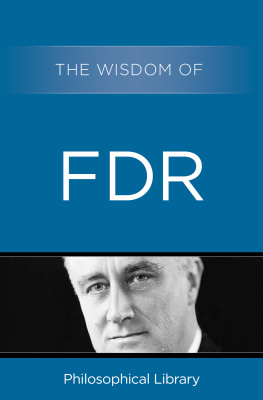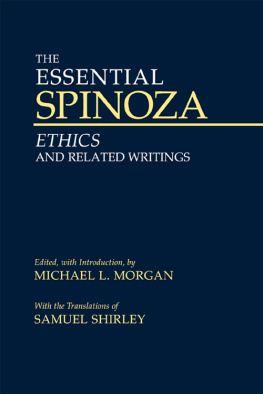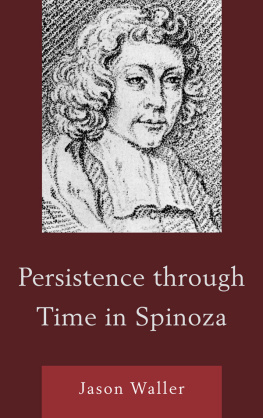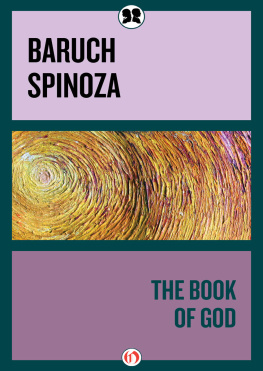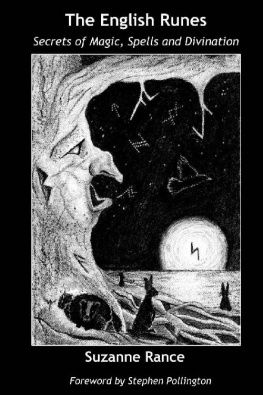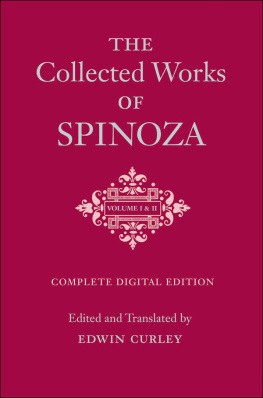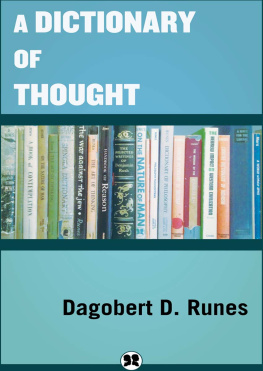A
ADEQUATE CAUSE
By an adequate cause, I mean a cause through which its effect can be clearly and distinctly perceived. By an inadequate or partial cause, I mean a cause through which, by itself, its effect cannot be understood.
E-III
ADEQUATE IDEAS
Between a true and an adequate idea, I recognize no difference, except that the epithet true only has regard to the agreement between the idea and its object, whereas the epithet adequate has regard to the nature of the idea in itself; so that in reality there is no difference between a true and an adequate idea beyond this extrinsic relation. However, in order that I may know, from which idea out of many all the properties of its object may be deduced, I pay attention to one point only, namely, that the idea or definition should express the efficient cause of its object. For instance, in inquiring into the properties of a circle, I ask, whether from the idea of a circle, that it consists of infinite right angles, I can deduce all its properties. I ask, I repeat, whether this idea involves the efficient cause of a circle. If it does not, I look for another, namely, that a circle is the space described by a line, of which one point is fixed, and the other movable. As this definition explains the efficient cause, I know that I can deduce from it all the properties of a circle. So, also, when I define God as a supremely perfect Being, then, since that definition does not express the efficient cause (I mean the efficient cause internal as well as external) I shall not be able to infer therefrom all the properties of God; as I can, when I define God as a Being.
I assert, that from certain properties of any particular thing (whatever idea be given) some things may be discovered more readily, others with more difficulty, though all are concerned with the nature of the thing. I think it need only be observed, that an idea should be sought for of such a kind, that all properties may be inferred, as has been said above. He, who is about to deduce all the properties of a particular thing, knows that the ultimate properties will necessarily be the most difficult to discover.
C-LXIV T
The activities of the mind arise solely from adequate ideas; the passive states of the mind depend solely on inadequate ideas.
E-III
There is no modification of the body, whereof we cannot form some clear and distinct conception.
Hence it follows that there is no emotion, whereof we cannot form some clear and distinct conception. For an emotion is the idea of a modification of the body, and must therefore involve some clear and distinct conception.
Seeing that there is nothing which is not followed by an effect, and that we clearly and distinctly understand whatever follows from an idea, which in us is adequate, it follows that everyone has the power of clearly and distinctly understanding himself and his emotions, if not absolutely, at any rate in part, and consequently of bringing it about, that he should become less subject to them. To attain this result, therefore, we must chiefly direct our efforts to acquiring, as far as possible, a clear and distinct knowledge of every emotion, in order that the mind may thus, through emotion, be determined to think of those things which it clearly and distinctly perceives, and wherein it fully acquiesces: and thus that the emotion itself may be separated from the thought of an external cause, and may be associated with true thoughts; whence it will come to pass, not only that love, hatred, &c. will be destroyed, but also that the appetites or desires, which are wont to arise from such emotion, will become incapable of being excessive. For it must be especially remarked, that the appetite through which a man is said to be active, and that through which he is said to be passive is one and the same. For instance, we have shown that human nature is so constituted, that everyone desires his fellow-men to live after his own fashion; in a man, who is not guided by reason, this appetite is a passion which is called ambition, and does not greatly differ from pride; whereas in a man, who lives by the dictates of reason, it is an activity or virtue which is called piety. In like manner all appetites or desires are only passions, in so far as they spring from inadequate ideas; the same results are accredited to virtue, when they are aroused or created by adequate ideas. For all desires, whereby we are determined to any given action, may arise as much from adequate as from inadequate ideas. Than this remedy for the emotions (to return to the point from which I started), which consists in a true knowledge thereof, nothing more excellent, being within our power, can be devised. For the mind has no other power save that of thinking and of forming adequate ideas.
E-V
ADMIRATION
See Rational Life
AFFECTIONS
Different men may be differently affected by the same object, and the same man may be differently affected at different times by the same object.
We thus see that it is possible, that what one man loves another may hate, and that what one man fears another may not fear; or, again, that one and the same man may love what he once hated, or may be bold where he once was timid, and so on. Again, as everyone judges according to his emotions what is good, what bad, what better, and what worse, it follows that mens judgments may vary no less than their emotions, hence when we compare some with others, we distinguish them solely by the diversity of their emotions, and style some intrepid, others timid, others by some other epithet.
E-III
AFFECTS
Whatsoever disposes the human body, so as to render it capable of being affected in an increased number of ways, is useful to man; and is so, in proportion as the body is thereby rendered more capable of being affected or affecting other bodies in an increased number of ways; contrariwise, whatsoever renders the body less capable in this respect is hurtful to man.
E-IV
Towards something future, which we conceive as close at hand, we are affected more intensely, than if we conceive that its time for existence is separated from the present by a longer interval; so too by the remembrance of what we conceive to have not long passed away we are affected more intensely, than if we conceive that it has long passed away.
E-IV
AFFIRMATION
See Ideas; Will
ALLIES
See Democracy
AMAZONS
See Women
AMBITION
Ambition is the immoderate desire for power.
Ambition is the desire, whereby all the emotions are fostered and strengthened; therefore this emotion can with difficulty be overcome. For, so long as a man is bound by any desire, he is at the same time necessarily bound by this. The best men, says Cicero, are especially led by honor. Even philosophers, when they write a book condemning honor, sign their names thereto, and so on.




